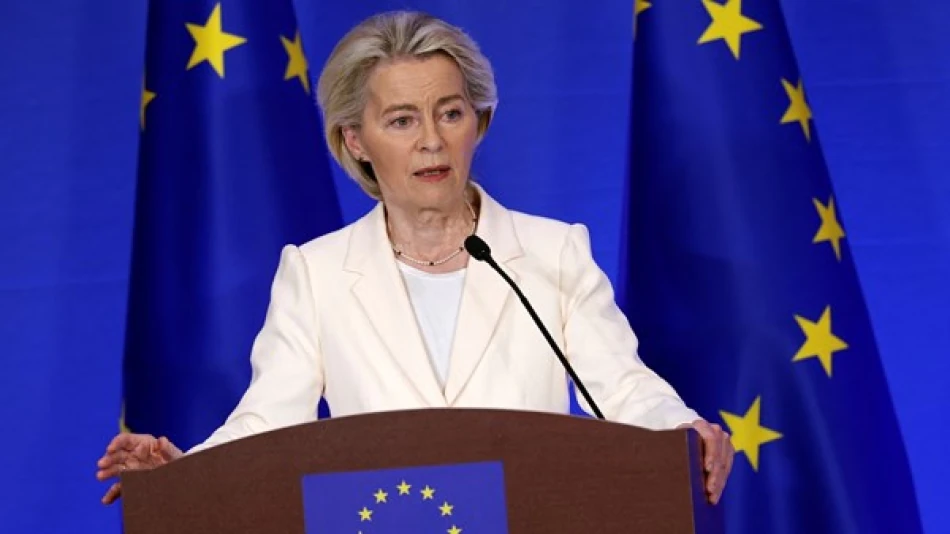
EU Commission President and Trump Meet at G7 Summit in Scotland
Trump and von der Leyen Face Off in Scotland as Trade War Deadline Looms
European Commission President Ursula von der Leyen will meet with U.S. President Donald Trump in Scotland today in a last-ditch effort to prevent punitive 30% tariffs on EU imports set to take effect August 1st. The high-stakes meeting at Trump's Turnberry resort represents a critical moment for transatlantic trade relations, with both sides scrambling to avoid an escalation that could ripple through global markets.
The 50-50 Gamble: What's at Stake
Trump's characterization of the talks as having "50-50" odds reveals the precarious nature of these negotiations. The proposed 30% tariff rate would represent one of the most aggressive trade measures against European allies in decades, potentially affecting everything from German automobiles to French wine and Italian fashion.
The timing is particularly significant. August traditionally marks a slow period for European markets, but the looming deadline has kept traders on edge throughout July. Currency markets have already shown volatility, with the euro weakening against the dollar as uncertainty mounts.
Trump's Leverage Strategy
The U.S. president has left room for negotiation, suggesting he would consider backing down from the higher tariff rates if the EU opens more of its markets to American goods. This approach mirrors Trump's previous tactics with China and Mexico, where he used tariff threats as negotiating leverage.
However, unlike those previous trade disputes, this confrontation targets America's closest allies. The EU represents the world's second-largest economy and the U.S.'s biggest trading partner after China, making any disruption potentially more damaging to global supply chains.
Europe's Defensive Position
Von der Leyen's decision to travel to Scotland personally underscores how seriously Brussels views the threat. The Commission has been working for weeks to craft a package that could satisfy Trump's demands for market access without compromising European sovereignty over trade policy.
A spokesperson for the Commission framed the meeting as an opportunity to find "a balanced outcome that provides stability and predictability for businesses and consumers on both sides of the Atlantic." This language suggests Europe is prepared to make concessions, though the extent remains unclear.
Market Implications and Global Ripple Effects
Financial markets are watching closely, as any failure to reach an agreement could trigger immediate selling pressure on European export-heavy stocks. Companies like BMW, LVMH, and ASML—which have significant U.S. exposure—would face immediate headwinds.
The broader implications extend beyond bilateral trade. A U.S.-EU trade war could fragment the Western economic alliance at a time when both sides are already dealing with challenges from China's growing economic influence. This fragmentation could accelerate the trend toward regional trade blocs rather than global integration.
Historical Context and Precedent
The current standoff echoes the steel and aluminum tariff disputes of 2018, but with higher stakes. Unlike those sector-specific measures, the proposed 30% tariffs would affect a broad swath of European exports, potentially reshaping transatlantic commerce for years to come.
The choice of venue—Trump's Scottish golf resort—also carries symbolic weight, suggesting the president views this as much as a personal negotiation as a formal diplomatic engagement. This informal setting could either facilitate breakthrough discussions or highlight the increasingly personal nature of international trade policy under Trump's leadership.
Most Viewed News

 Layla Al Mansoori
Layla Al Mansoori






